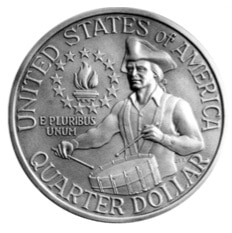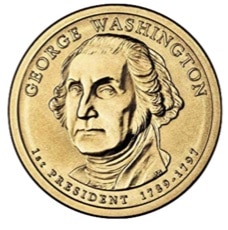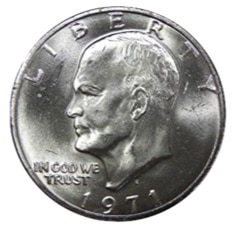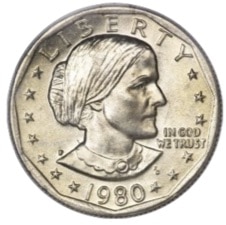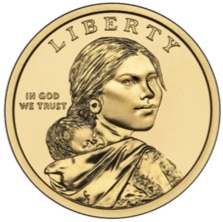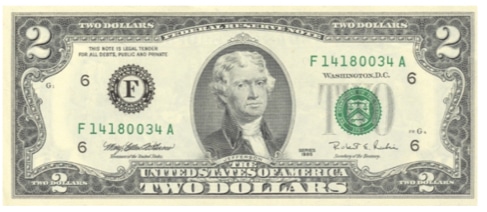You can collect them, but they are generally not worth more than face value.
A few modern day coins look slightly different than the most widely-circulated coins. There’s a lot of misinformation (clickbait) on the internet leading people to believe that these ordinary coins are worth more than face value. Here are some of the coins that may look different, but are no big deal. (Versión en español)
United States Bicentennial Quarters
United States Bicentennial coinage is worth 25 cents. It’s not from 1776, and it’s not silver.
United States Presidential Dollar Coins
Presidential dollar coins are only worth a dollar. From 2007 to 2011, presidential one dollar coins were minted for circulation in large numbers, resulting in a sizable stockpile of unused $1 coins. It is not special, and it is not made of gold.
United States Eisenhower Dollar
Eisenhower Dollars are generally worth one dollar. However, the US Mint did make some special silver collector’s issues. If the side of the coin has a copper/clad band, it is worth a dollar. If it has no copper band, then you may have a silver one.
Eisenhower Dollars dollars failed to circulate to any degree, except in and around Nevada casinos, where they took the place of privately issued tokens. They are not rare.
United States Susan B. Anthony dollar
The Susan B. Anthony dollar is a United States dollar coin minted from 1979 to 1981 (and again in 1999), when production was suspended due to poor public acceptance. It was intended as a replacement for the cumbersome Eisenhower dollar. They are usually only worth a dollar.
United States Sacagawea dollar
The Sacagawea dollar is just a dollar. The coin was introduced as a replacement for the Susan B. Anthony dollar, but these dollars are also very unpopular.
United States two-dollar bill
This modern two dollar bill is printed in fairly low production numbers due to lack of demand. The Bureau of Engraving and Printing does still produce them. They are common enough to be used as currency. Some people believe they are lucky, especially in South America.

